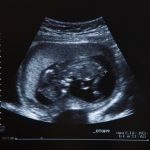When does pregnancy start counting? Understanding the beginning of pregnancy is crucial for expectant parents and healthcare providers to ensure proper prenatal care and tracking of pregnancy milestones. This article will explore the concept of pregnancy and the significance of knowing when it starts counting.
Pregnancy is a transformative period in a woman’s life, marked by the development of a new life within her body. It is essential to determine when pregnancy officially begins in order to accurately track its progress and ensure the health and well-being of both the mother and the developing fetus. The understanding of when pregnancy starts counting also plays a vital role in managing prenatal care and preparing for childbirth.
In this article, we will delve into various aspects of pregnancy start counting, including the moment of conception, the process of implantation, and the difference between gestational age and fetal age. We will also address how healthcare professionals calculate the start of pregnancy, common misconceptions about this topic, and why knowing when pregnancy begins is crucial for expectant parents. Stay tuned as we unravel the mysteries surrounding when pregnancy truly starts counting.
Conception
Biological Process
The biological process of pregnancy truly begins at conception when the genetic material from both the sperm and egg combine to form a unique set of DNA for the developing baby. The zygote undergoes rapid cell division as it moves through the fallopian tube towards the uterus. Once in the uterus, it continues to divide and develop until it becomes an embryo. This early stage of development holds tremendous significance as it marks the beginning of potential life.
Significance of Conception
Understanding when conception occurs is crucial for determining the start date of pregnancy as it sets in motion all the subsequent stages of fetal development. It also provides valuable information for expectant parents and healthcare professionals in terms of prenatal care, monitoring milestones, and anticipating childbirth. Conception serves as a pivotal point in pregnancy counting and lays the foundation for what lies ahead in this extraordinary journey towards parenthood.
Maintaining awareness about conception and its role in pregnancy counting allows individuals to accurately track their gestational age and fetal age. This knowledge enables them to make informed decisions regarding their health and well-being throughout this transformative experience.
Implantation
The process of implantation is essential for the successful progression of pregnancy. Without proper implantation, the pregnancy may not be viable or could result in complications. This is why understanding when implantation occurs is crucial for expectant parents and healthcare providers.
After implantation, the body starts producing human chorionic gonadotropin (hCG), a hormone that can be detected through a pregnancy test. This is also when gestational age begins to be calculated. It’s important to note that while gestational age is counted from this point, fetal age – which starts at conception – may differ by up to two weeks. This can sometimes cause confusion for individuals trying to determine their due date or how far along they are in their pregnancy.
Ultimately, knowing about implantation and its significance in pregnancy counting can help expectant parents understand the timeline of prenatal care and key developmental milestones. It also provides healthcare professionals with essential information for monitoring and supporting a healthy pregnancy. Understanding this process can alleviate misconceptions and myths surrounding pregnancy start counting and lead to better overall care for both mother and baby.
| Implantation Stage | Timeline |
|---|---|
| Occurs | About 6-12 days after ovulation |
| Hormone Production | Starts producing hCG after implantation |
| Pregnancy Test Detection | Can be detected through a pregnancy test after implantation |
Gestational Age vs Fetal Age
Understanding Gestational Age
Gestational age refers to the age of the pregnancy and is measured in weeks, starting from the first day of the woman’s last menstrual period. This means that even though conception typically occurs about two weeks after her last period, a woman is considered four weeks pregnant on the day of her missed period. It helps healthcare providers determine various aspects of prenatal care and fetal development.
Contributions to Pregnancy Countdown
Knowing the gestational age is crucial for tracking the progression of pregnancy, scheduling prenatal appointments, and anticipating key developmental milestones for the fetus. It also provides an accurate timeline for screening tests and monitoring the baby’s growth throughout the different trimesters.
Definition of Fetal Age
Fetal age, on the other hand, starts counting from the date of conception or fertilization. It represents the actual time that has elapsed since the egg was fertilized by a sperm.
Significance in Pregnancy Tracking
Understanding fetal age is important for expectant parents as it aligns with their awareness about their reproductive activities. This information contributes to a more personal connection with the pregnancy journey and allows them to correlate specific events, such as when they may have conceived, with their overall experience.
Overall Contribution to Pregnancy Countdown
The difference between gestational age and fetal age can sometimes lead to confusion among individuals who are trying to pinpoint exactly when pregnancy begins. However, both measures play essential roles in understanding and tracking this significant life event. When considering prenatal care and monitoring fetal development, it is vital to acknowledge both gestational and fetal ages for a comprehensive approach to pregnancy counting.
Medical Perspectives
In the medical field, pregnancy is typically calculated based on the first day of a woman’s last menstrual period (LMP). This method assumes that ovulation occurs around day 14 of a 28-day cycle, and the egg is fertilized on this day.
This means that by the time a woman misses her period and takes a pregnancy test, she is already considered 4 weeks pregnant. This approach may differ from the actual date of conception, which occurs approximately two weeks after the start of LMP.
Another method used by healthcare professionals to calculate pregnancy is through ultrasound measurements. Ultrasound dating can provide a more accurate estimation of gestational age by measuring the size of the embryo or fetus. The timing of this measurement can help determine when pregnancy starts counting for prenatal care and monitoring.
In cases where there is uncertainty about the date of conception or irregular menstrual cycles, healthcare providers may use additional methods such as hormone levels tests or physical exams to estimate gestational age. While these methods may not always align with the exact moment of fertilization, they are essential for establishing a reliable timeline for prenatal care and identifying potential issues during pregnancy.
| Calculation Method | Timing |
|---|---|
| Last Menstrual Period (LMP) | Around day 14 of a 28-day cycle |
| Ultrasound Dating | Measurement of embryo/fetus size |
| Hormone Levels Tests/Physical Exams | Irregular menstrual cycles or uncertainty about conception date |
Understanding how healthcare professionals calculate the start of pregnancy is crucial for expectant parents to ensure adequate prenatal care and monitoring throughout pregnancy. It also emphasizes that while there may be variations in determining the exact start date, medical perspectives play a vital role in providing accurate gestational age for optimal maternal and fetal health.
Confusion About the Start Date
When it comes to understanding when pregnancy starts counting, there are often misconceptions and myths that can lead to confusion. It is important to address these misunderstandings in order to have a clear understanding of the start date of pregnancy. Here are some common misconceptions and myths surrounding the counting of pregnancy:
1. Myth: Pregnancy starts at the first missed period.
2. Myth: The start of pregnancy is the same as the start of fetal development.
3. Myth: The date of last menstrual period (LMP) is always accurate for calculating the start of pregnancy.
These misconceptions can lead to misinformation and misunderstanding about the true start date of pregnancy. It’s important for expectant parents to consult with healthcare professionals who can provide accurate information and guidance on this matter.
Understanding when pregnancy starts counting is crucial for prenatal care and monitoring the growth and development of the fetus. Despite these myths and misconceptions, healthcare providers use precise methods to calculate the start of pregnancy based on various factors such as conception date, implantation, and gestational age versus fetal age. By addressing these common myths and providing accurate information, expectant parents can make informed decisions regarding their prenatal care and be better prepared for their journey through pregnancy and childbirth.
Ultimately, by addressing these misunderstandings surrounding the start date of pregnancy, expectant parents can have a clearer understanding of when their journey truly begins, allowing them to make more informed decisions regarding their prenatal care and ensuring they are well-equipped for the milestones that lie ahead.
Importance of Knowing the Start Date
Understanding when pregnancy starts counting is crucial for expectant parents and healthcare providers, as it sets the stage for proper prenatal care and tracking important pregnancy milestones. The start date of pregnancy determines when various screenings, tests, and doctor visits should occur. It also helps in estimating the due date and monitoring the growth and development of the fetus. Here are some key reasons why knowing the start date of pregnancy is essential:
- Prenatal Care Schedule: Knowing when pregnancy begins allows healthcare providers to establish a proper schedule for prenatal care. This includes timing important tests such as ultrasounds, blood work, and genetic screenings. It also ensures that expectant parents receive appropriate guidance on nutrition, exercise, and any necessary lifestyle changes.
- Estimating Due Date: Understanding the start date of pregnancy is crucial for estimating the due date. This information helps both parents and healthcare providers to prepare for labor and delivery. Additionally, it allows for monitoring fetal development and ensuring that the baby is growing at a healthy rate.
- Monitoring Fetal Development: Pregnancy milestones are often tracked based on gestational age – which is determined from the start date of pregnancy. These milestones include when certain organs develop, when movement can be felt, and when specific tests should be performed. Knowing when pregnancy begins aids in closely monitoring these developments to ensure a healthy pregnancy.
It’s important to note that while gestational age – which is based on the start date of pregnancy – is commonly used in medical settings, fetal age (which is counted from conception) may also be considered during prenatal care discussions with expectant parents. Both perspectives play a role in understanding the progression of pregnancy and preparing for parenthood.
Ultimately, understanding when pregnancy starts counting is essential for providing comprehensive prenatal care and support to expectant parents throughout their journey towards childbirth.
Conclusion
In conclusion, understanding when pregnancy starts counting is crucial for expectant parents and healthcare providers. From the moment of conception to the implantation process and the determination of gestational age, knowing the start date of pregnancy plays a significant role in prenatal care and monitoring fetal development. It allows healthcare professionals to provide accurate medical assessments and personalized care for both the mother and baby.
Furthermore, confusion about the start date of pregnancy can lead to misconceptions and myths that may affect decision-making during early pregnancy. By debunking these myths and educating individuals on the actual start of pregnancy, expectant parents can make informed choices about their prenatal health and well-being.
Overall, being aware of when pregnancy begins counting is essential for expecting parents as they navigate through the various stages of pregnancy. From tracking milestones to receiving appropriate medical attention, understanding the start date of pregnancy sets a strong foundation for a healthy and successful journey into parenthood. Moreover, healthcare providers can utilize this knowledge to offer comprehensive support for both mother and child throughout the entire pregnancy process.
Frequently Asked Questions
When Is the First Day of Pregnancy Counted?
The first day of pregnancy is typically counted as the first day of a woman’s last menstrual period, even though conception may not have occurred yet. This helps in calculating the due date.
When Do You Start Counting Weeks When You Get Pregnant?
Weeks of pregnancy are counted from the first day of a woman’s last menstrual period. So, if a woman gets pregnant, she is considered 4 weeks pregnant at that time, even though conception only happened about 2 weeks ago.
Is 4 Weeks Pregnant Actually 2?
When a woman is considered 4 weeks pregnant, it means that the egg was fertilized about 2 weeks ago. So, even though technically only 2 weeks have passed since conception, medically she would be referred to as 4 weeks pregnant.

Welcome to my fertility blog. This is a space where I will be sharing my experiences as I navigate through the world of fertility treatments, as well as provide information and resources about fertility and pregnancy.





